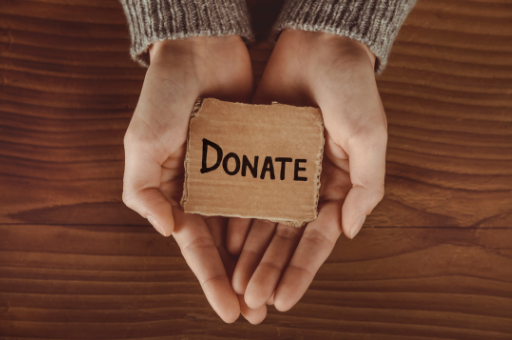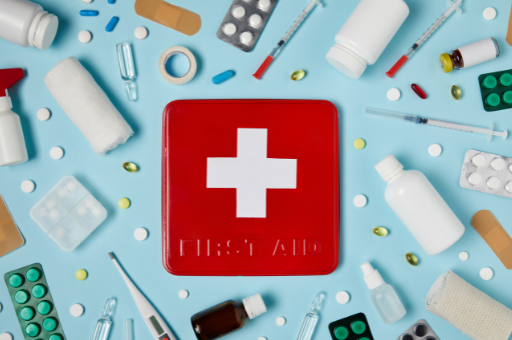
Dealing with Unused Medications
Updated: August 22, 2023
Medicines, dietary supplements, and over-the-counter (OTC) drugs may be important for our health and well-being, but they can also be a health risk in the home, especially if there are children present. Keeping unused or expired medications, whether yours or a loved one’s after their death, creates an unnecessary and avoidable risk of poisoning.
- Exposure to medicine in the home is a major source of unintentional poisonings in children in the United States.
- Each year in the United States, approximately 60,000 emergency department (ED) visits and 450,000 calls to poison centers are made after children under 6 years of age find and ingest medication without caregiver oversight.
- Over two-thirds of ED visits for accidental pediatric medication exposures involve children 1-2 years old and nearly 20% result in hospitalization.
You may even have medications, especially pain medication, that others could steal to use recreationally or sell, which are best disposed of immediately.
Medication should not routinely be put in the trash or flushed down the toilet until you look up the recommended form of disposal for that medication.
The preferred choice is to find a location that has a drop box or kiosk for your unused medications.
- This could either be a permanent location or during a periodic take-back program.
- Contact your local police department or pharmacies to find out if they have year-round medicine disposal drop boxes and when you can use them.
- If not, they may be able to tell you of the closest location or when the next scheduled DEA take-back event is.
- You can check the DEA website for the date and local collection sites.
- They are sometimes placed in fire stations, hospitals, and municipal buildings.
- The major disadvantage is that take-back centers may have limited times when you can bring medications in, requiring you to either wait or search around.
Alternatively, you may be able to dispose of it yourself.
- When attempting to dispose of a medication yourself, the specific details you need to know are the type of medication, the recommendations for disposing those medications, and federal, state, and local laws regarding their disposal. The Federal Drug Disposal Act regulates most of the options.
- The major advantage is that you can do it immediately and not have to look for and drive to take-back locations or wait until the next take-back day.
- It is important to know the impact of each disposal method, usually environmental, and how to do it properly.
You may also want to look into whether you can donate certain medications before getting rid of them.
Some of their medications may have been autoinjectors or needed a needle and syringe to administer. NeedyMeds’ Safe Needle Disposal describes ways to dispose of used and unused needles.
Resources
- DEA
- DEA National Prescription Drug Take Back Day
- Next scheduled DEA event – events usually take place twice a year.
- Drug Disposal Information, including disposal sites, fact sheets, and relevant laws.
- Controlled Substance Public Disposal Locations – online resource to help locate medication disposal sites.
- Dispose My Meds – online resource to help locate medication disposal programs at local independent community pharmacy. Less useful than DEA tool, but may list locations DEA doesn’t.
- Drug Disposal – the National Association of Boards of Pharmacy Drug Disposal Locator allows you to search for safe collection sites by ZIP code.
- How to Dispose of Inhalers
- How to Dispose of Medicines Properly – handout from the Environmental Protection Agency.
- How To Dispose Of Medicine Safely. American Association of Poison Control Centers handout.
- How to Safely Dispose of Your Asthma and Allergy Medicines – Asthma and Allergy Foundation of America.
- Identifying Drugs – images of many dangerous medications to help identify them.
- My Old Meds – a searches for kiosk sites found in pharmacies and law enforcement facilities in all 50 states by zip code.
- SIRUM – non-profit organization that will accept donated medications and provides information on other donation programs.
- State Prescription Drug Repository Programs. National Conference of State Legislatures website.
- Pharmacies
- CVS
- Rite Aid
- Sam’s Club/Walmart
- Walgreens — may take inhalers and liquids
- US Food and Drug Administration
- A dose of reality: How to dispose of unwanted medication. CVS Health website. Posted: April 20, 2023. Accessed: August 22, 2023.
- Bauer A. What Should I Do With Unused Medications? Cancer.net website. Updated: April 24, 2023. Accessed: August 22, 2023
- Collecting and Disposing of Unwanted Medicines. Environmental Protection Agency website. Updated: December 8, 2022. Accessed: August 22, 2023.
- Disposal of Unused Medicines: What You Should Know. US Food & Drug Administration website. Updated: October 1, 2020. Accessed: August 22, 2023.
- Drug Disposal: Flush Potentially Dangerous Medicine. US Food & Drug Administration website. Updated: October 1, 2020. Accessed: 22, 2023.
- Drug Disposal: Questions and Answers. US Food & Drug Administration website. Updated: October 1, 2020. Accessed: August 22, 2023.
- Gerencher K. What Should You Do With Expired or Leftover Medications? GoodRx website. Updated: April 28, 2022. Accessed: August 22, 2023.
- How to Safely Dispose of Your Asthma and Allergy Medicines. Asthma and Allergy Foundation of America website. Updated: September 2022. Accessed: August 22, 2023.
- Ianzito C. More Drug Stores Take Back Your Unused Meds. AARP website. Posted: June 18, 2018. Accessed: August 22, 2023.
- Kaplan M. How to safely dispose of old medications. The Washington Post website. Posted: January 12, 2023. Accessed: August 22, 2023.
- Ruelas G. How to Dispose of Inhalers? 4 Right Ways! How to Dispose website. Accessed: August 22, 2023.
- Safe Medicine Disposal. American Association of Poison Control Centers website. Accessed: August 22, 2023.
- Safe Medicine Storage & Disposal. BeMedWise website. Updated: May 6, 2020. Accessed: August 22, 2023.
- Sun M. A pharmacist’s guide to safe and proper medication disposal. Children’s Hospital of Orange County website. Updated: January 4, 2022. Accessed: August 22, 2023
- Usman K, et al. Risks Associated With the Environmental Release of Pharmaceuticals on the U.S. Food and Drug Administration “Flush List.” Sci Total Environ. 2017 Dec 31;609:1023.
- Weinberger D. Consider donating your unused, unexpired prescription medications. SingleCare website. Posted: July 10, 2019. Accessed: August 22, 2023.
- Where and How to Dispose of Unused Medicines. US Food & Drug Administration website. Reviewed: April 4, 2021. Accessed: August 22, 2023.


